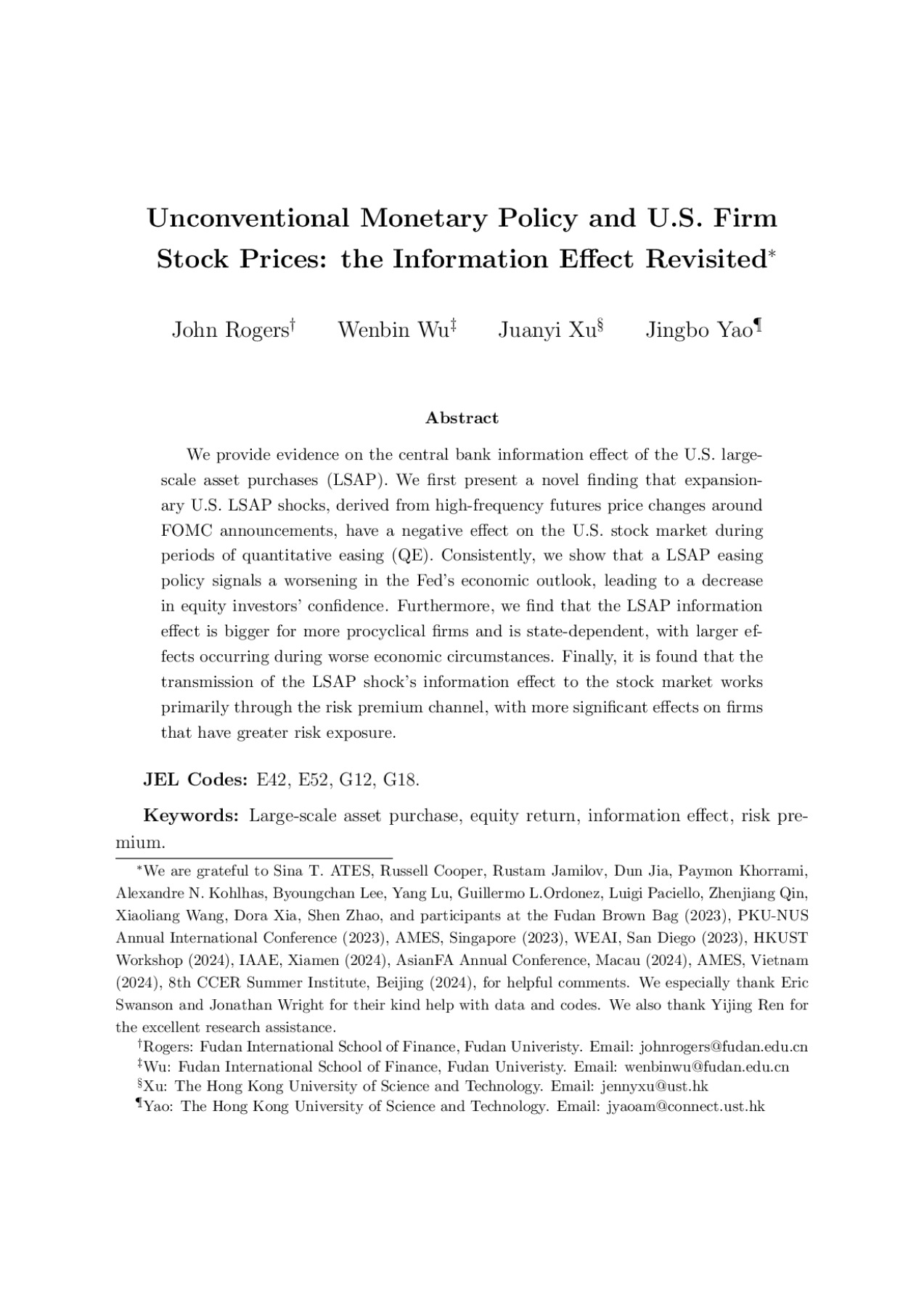2024 AMES in E/SE Asia, Ho Chi Minh City, Vietnam: August, 2024
Unconventional Monetary Policy and U.S. Firm Stock Prices: the Information Effect Revisited
John Rogers, Wenbin Wu, Juanyi Jenny Xu, Jingbo Yao
We provide evidence on the central bank information effect of the U.S. large-scale asset purchases (LSAP). We first present a novel finding that expansionary U.S. LSAP shocks, derived from high-frequency futures price changes around FOMC announcements, have a negative effect on the U.S. stock market during periods of quantitative easing (QE). Consistently, we show that a LSAP easing policy signals a worsening in the Fed's economic outlook, leading to a decrease in equity investors' confidence. Furthermore, we find that the LSAP information effect is bigger for more procyclical firms and is state-dependent, with larger effects occurring during worse economic circumstances. Finally, it is found that the transmission of the LSAP shock's information effect to the stock market works primarily through the risk premium channel, with more significant effects on firms that have greater risk exposure.
Preview




























































































